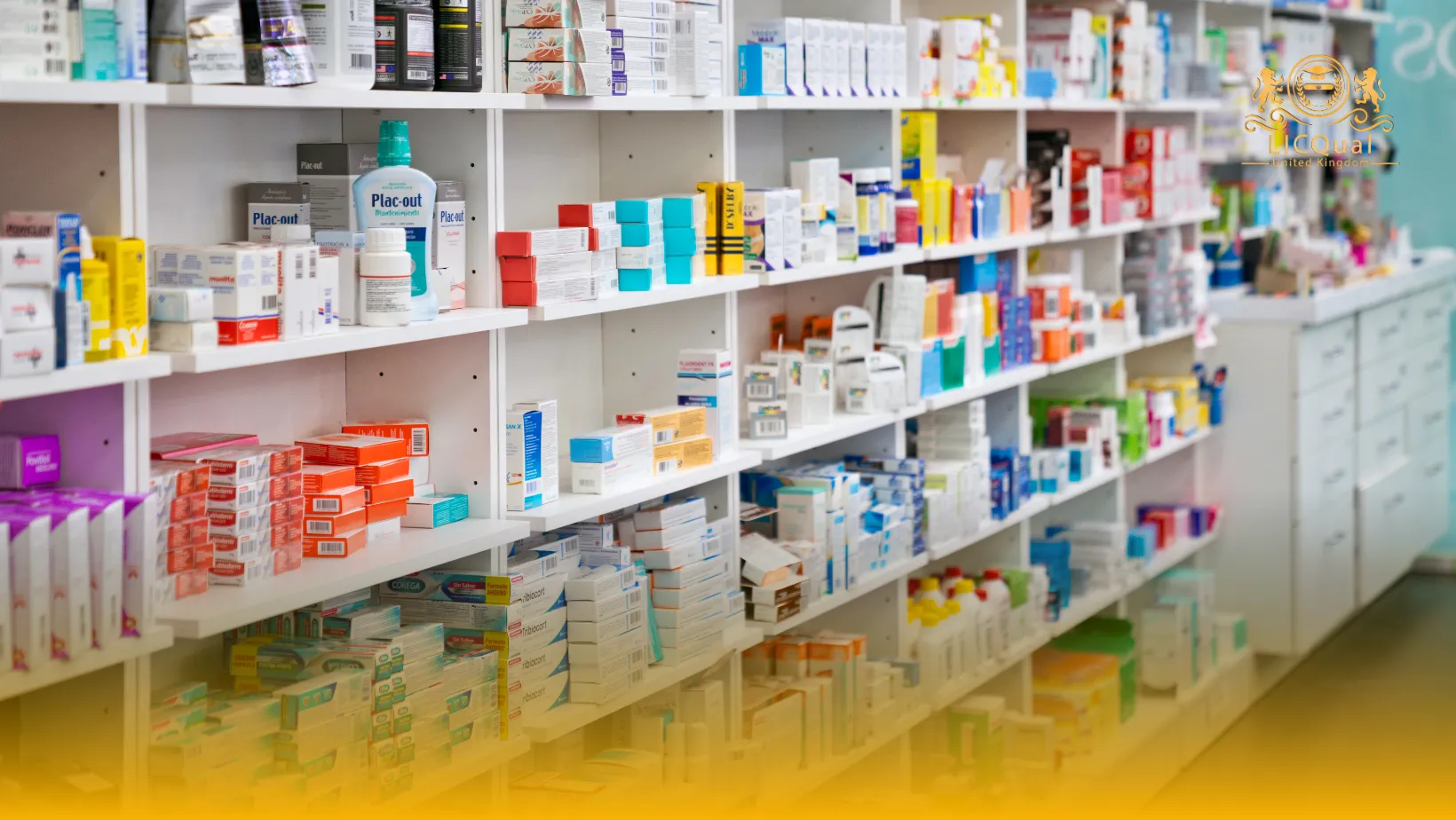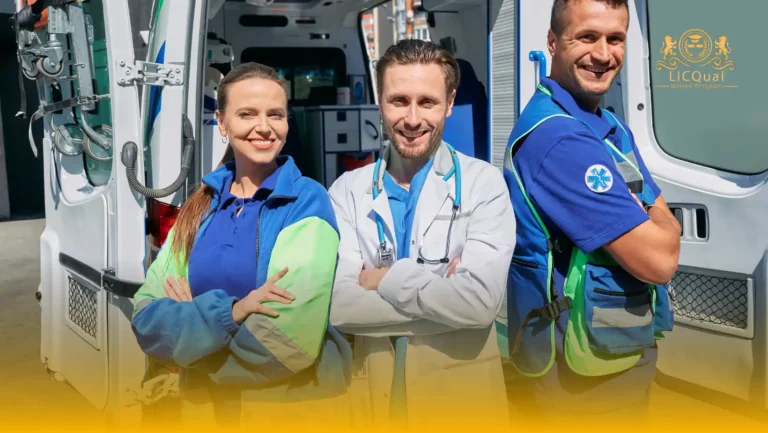The LICQual Level 7 Postgraduate Diploma in Travel Medicine (PgDTM) is a specialised qualification designed for healthcare professionals who wish to advance their expertise in the prevention, diagnosis, and management of health risks associated with international travel. This programme is not aimed at fresh candidates but tailored for experienced practitioners who want to expand their knowledge, enhance career prospects, and strengthen their Continuing Professional Development (CPD).
With the rise of global travel, the demand for highly skilled professionals in travel medicine has never been greater. This diploma equips learners with advanced understanding of infectious diseases, vaccination protocols, tropical medicine, environmental health risks, and the management of medical emergencies in travel settings. Learners will gain the skills to assess complex travel health risks, provide evidence-based advice, and deliver high-quality care to travellers across diverse contexts.
Centres delivering this qualification must ensure the highest academic and professional standards. They are required to have competent and experienced staff with specialist expertise in travel and tropical medicine. In addition, centres must provide learners with access to up-to-date resources, medical case studies, and research materials, ensuring effective training delivery and measurable learner success.
By completing this programme, learners will be prepared to take on senior roles in travel health clinics, hospitals, public health organisations, and international health advisory services. The diploma also supports professional progression into research and leadership positions, reflecting international best practices in travel and expedition medicine.
Course Overview
Qualification Title
LICQual Level 7 Postgraduate Diploma in Travel Medicine (PgDTM)
Total Units
6
Total Credits
120
GLH
600
Qualification #
LICQ2200992
Qualification Specification
To enroll in the LICQual Level 7 Postgraduate Diploma in Travel Medicine (PgDTM), applicants must meet the following criteria:
|
Qualification# |
Unit Title |
Credits |
GLH |
|---|---|---|---|
|
LICQ2200992-1 |
Principles of Travel and Migration Medicine |
20 |
100 |
|
LICQ2200992-2 |
Infectious and Tropical Diseases in Travellers |
20 |
100 |
|
LICQ2200992-3 |
Immunisation, Vaccination Protocols, and Preventive Care |
20 |
100 |
|
LICQ2200992-4 |
Environmental, Geographical, and Occupational Health Risks |
20 |
100 |
|
LICQ2200992-5 |
Clinical Assessment, Risk Management, and Emergency Care in Travel Settings |
20 |
100 |
|
LICQ2200992-6 |
Research, Evidence-Based Practice, and Professional Development in Travel Medicine |
20 |
100 |
By the end of this course, learners will be able to:
Unit 1: Principles of Travel and Migration Medicine
- Analyse the foundations and scope of travel and migration medicine in a global health context
- Evaluate health risks associated with international travel and long-term migration
- Apply international guidelines and ethical considerations in providing travel health advice
- Assess the impact of travel trends, climate change, and migration patterns on health outcomes
Unit 2: Infectious and Tropical Diseases in Travellers
- Identify major infectious and tropical diseases relevant to travellers
- Critically assess diagnostic methods for malaria, dengue, yellow fever, and other conditions
- Evaluate strategies for the management and prevention of infectious diseases during travel
- Apply global health policies and WHO recommendations in practice
Unit 3: Immunisation, Vaccination Protocols, and Preventive Care
- Assess international vaccination requirements and best practices for travellers
- Evaluate immunisation schedules and contraindications in different patient groups
- Apply evidence-based approaches to travel-related preventive healthcare
- Provide expert counselling on vaccination, prophylaxis, and disease prevention
Unit 4: Environmental, Geographical, and Occupational Health Risks
- Analyse the effects of altitude, climate, radiation, and pollution on traveller health
- Evaluate occupational risks associated with aviation, maritime, and remote-area travel
- Develop risk management strategies for travellers exposed to extreme environments
- Critically assess preventive interventions for environmental health hazards
Unit 5: Clinical Assessment, Risk Management, and Emergency Care in Travel Settings
- Conduct advanced clinical assessments for pre-travel and post-travel consultations
- Evaluate methods of managing medical emergencies in remote or resource-limited areas
- Develop risk mitigation strategies for high-risk travellers and complex itineraries
- Apply international standards for emergency care, evacuation, and crisis response
Unit 6: Research, Evidence-Based Practice, and Professional Development in Travel Medicine
- Conduct independent research on contemporary issues in travel medicine
- Critically evaluate scientific literature and apply findings to clinical practice
- Integrate evidence-based decision-making into advanced patient care
- Demonstrate commitment to Continuing Professional Development (CPD) and global best practices
The LICQual Level 7 Postgraduate Diploma in Travel Medicine (PgDTM) is designed for healthcare professionals, clinicians, public health specialists, and medical practitioners seeking advanced expertise in travel health. This Level 7 qualification is ideal for those looking to gain internationally recognized credentials, develop practical skills in preventive travel medicine, and manage travel-related health risks effectively. Whether you work in hospitals, travel clinics, public health organizations, or research settings, this diploma equips you with the knowledge and credibility to excel in global travel medicine.
Doctors and Physicians
- Designed for physicians specializing in travel health and preventive medicine.
- Enhances knowledge of tropical diseases, vaccinations, and infectious disease management.
- Builds skills in travel risk assessment and patient counseling.
- Strengthens evidence-based clinical decision-making in traveler care.
- Provides internationally recognized credentials for career advancement.
Nurses and Allied Health Professionals
- Tailored for nurses, clinical practitioners, and allied health staff in travel medicine.
- Enhances patient assessment and monitoring for travelers.
- Builds confidence in vaccination administration and preventive care strategies.
- Develops understanding of ethical, legal, and professional standards in travel health.
- Supports continuing professional development (CPD) and clinical competency.
Public Health Specialists
- Ideal for professionals involved in global health and epidemiology.
- Improves skills in outbreak management, disease surveillance, and traveler safety.
- Enhances knowledge of international health regulations and preventive strategies.
- Promotes evidence-based public health interventions for travelers.
- Supports leadership roles in travel medicine and global health initiatives.
Medical Students and Postgraduate Trainees
- Suitable for graduates pursuing specialization in travel medicine or infectious diseases.
- Provides foundational knowledge in global health and preventive care.
- Enhances clinical reasoning, research, and analytical skills.
- Prepares learners for postgraduate training or specialized clinical practice.
- Offers internationally recognized certification to boost professional credentials.
Travel Clinic and Hospital Practitioners
- Designed for clinicians working in travel or occupational health clinics.
- Enhances patient consultation and preventive care planning expertise.
- Builds advanced skills in vaccination, risk assessment, and traveler counseling.
- Encourages best practices in private clinic and hospital settings.
- Supports professional credibility and career progression in travel medicine.
International Healthcare Professionals
- Perfect for global learners seeking UK-recognized training in travel medicine.
- Offers flexible online learning to balance work and study commitments.
- Equips learners with skills for clinical and preventive care in international settings.
- Builds credibility and recognition in global travel medicine networks.
- Supports career growth and international professional opportunities.
Researchers and Academics
- Tailored for professionals conducting research in infectious diseases and travel health.
- Enhances understanding of epidemiology, disease prevention, and global health trends.
- Promotes development of evidence-based travel medicine protocols.
- Supports publication and academic advancement in global health and travel medicine.
- Strengthens professional credibility and research expertise.
Centres delivering the LICQual Level 7 Postgraduate Diploma in Travel Medicine must meet high academic and professional standards to ensure that every learner receives high-quality training and support. The following requirements must be fulfilled by approved centres:
- Qualified and Competent Staff: Centres must employ tutors, trainers, and assessors with recognised qualifications and proven expertise in medicine, public health, and travel medicine. Staff should also have relevant teaching and assessment experience at Level 7 or above.
- Appropriate Learning Resources: Centres must provide learners with access to updated textbooks, digital learning platforms, medical journals, and online resources related to travel health, global disease prevention, and clinical practice.
- Clinical and Practical Facilities: Adequate training facilities, clinical simulation equipment, and case-study materials must be available to ensure practical application of travel medicine knowledge.
- Robust Quality Assurance Systems: Centres must implement effective quality assurance policies to maintain consistency, fairness, and academic integrity in teaching, learning, and assessment.
- Learner Support Services: Institutions must provide comprehensive academic guidance, mentorship, and administrative support, ensuring learners can achieve successful outcomes.
- Commitment to CPD and Innovation: Centres must encourage both learners and staff to engage in Continuing Professional Development (CPD) and remain updated with the latest research in global and travel medicine.
- Compliance with International Standards: Training delivery must meet international higher education standards, ensuring recognition and credibility for learners across diverse professional environments.
Assessment and Verification
All units within this qualification are subject to internal assessment by the approved centre and external verification by LICQual. The qualification follows a criterion-referenced assessment approach, ensuring that learners meet all specified learning outcomes.
To achieve a ‘Pass’ in any unit, learners must provide valid, sufficient, and authentic evidence demonstrating their attainment of all learning outcomes and compliance with the prescribed assessment criteria. The Assessor is responsible for evaluating the evidence and determining whether the learner has successfully met the required standards.
Assessors must maintain a clear and comprehensive audit trail, documenting the basis for their assessment decisions to ensure transparency, consistency, and compliance with quality assurance requirements.







